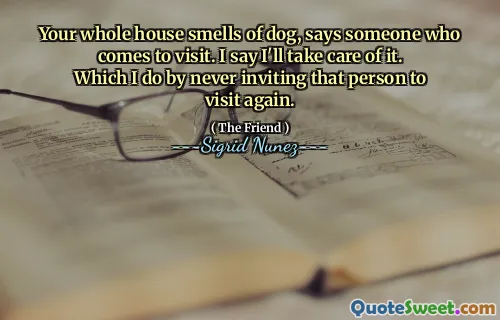The poet Rilke once reported seeing a dying dog give its mistress a look full of reproach. Later, he gave this experience to the narrator of a novel: He was convinced I could have prevented it. It was now clear that he had always overrated me. And there was no time left to explain it to him. He continued to gaze at me, surprised and solitary, until it was over.
The poet Rilke recounted an emotional moment where he witnessed a dying dog staring reproachfully at its owner. This poignant experience later influenced his writings, as he conveyed the dog's perception of abandonment to a novel's narrator. Rilke felt the dog believed he could have intervened in its suffering, highlighting the heavy burden of unfulfilled expectations.
This moment captures the profound connection between humans and animals, emphasizing themes of guilt and regret. The narrator, recognizing the dog's sorrowful gaze, is faced with the realization that communication and understanding can fall short, especially at the end of life. This connection between the living and the dying resonates deeply, inviting reflection on the responsibilities we hold toward those we care for.






